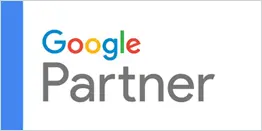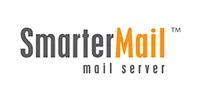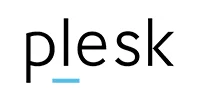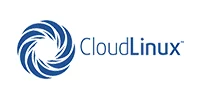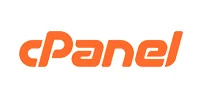Hosting services with real-time fast performance?
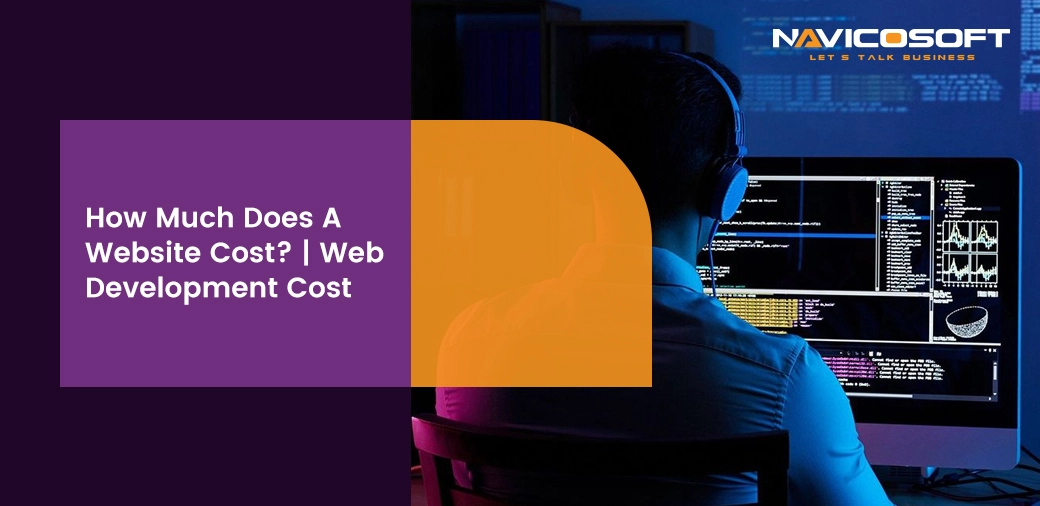
How Much Does A Website Cost? | Web Development Cost
In our digital era, a website serves as a critical conduit between a business and its audience. Its cost can significantly vary, much like the price of a house, depending on the size, design, materials, and location. In addition, building a website can be compared to constructing a house. Just as the cost of a place varies based on size, design, materials, and location, the web development cost depends on numerous factors such as complexity, features, design, and development methods.
As we delve into the factors contributing to the cost of creating a website, remember that, like any ‘Investment,’ the value of a good website is measured by the ‘Return’ it brings you over time.
Domain Name and Hosting
Your website’s journey begins with a domain name, which typically costs $10-$15 per year. It’s your online address and uniquely identifies your website on the Internet. However, Web hosting, which is like the plot of land where your online ‘house’ sits, can range from $3 to $50 monthly, depending on the type of hosting (shared, VPS, or dedicated server) you choose.
Domain names and web hosting play crucial roles in the efficiency of web development and the overall functionality of a website. Let’s explore their significance in detail:
Domain Names
It is the web address users type into their browsers to access your website. It serves as a unique identifier for your site and plays a pivotal role in enhancing your online presence. The cost of a domain name can range from around $10 to $15 per year for standard domains, but premium domain names can cost significantly more. Therefore, the actual web development cost can also vary depending on the registrar and any additional services you opt for, like privacy protection.
Here’s how:
Branding and Credibility
A unique, catchy domain name can contribute to building your brand’s online identity and credibility. Thus, a domain name that matches your business name boosts your brand and makes it easier for customers to remember and return. For marketing and branding your website, you must select your web development cost because the cost matters a lot.
SEO: Although domain names are not a primary factor in search engine rankings, a well-chosen one can have an impact. Including relevant keywords can help with SEO, and a memorable, easy-to-spell domain can improve user experience, indirectly benefiting SEO.
Mobility
Having your own domain name allows you to move to a different web host, if needed, without losing your website’s identity. Thus, it depends on what features you want to add to your website and affects your web development cost.
Web Hosting
You can view your website online with web hosting, which provides the necessary technology and services. It stores your website’s files on a server, making them accessible to users worldwide. Thus, Web hosting is a service that makes your website accessible over the Internet.
Shared hosting, where you share assets with other websites, can cost from $3 per month. VPS hosting, providing you with more dedicated resources, can start at around $20 per month. Dedicated hosting, where an entire server is dedicated to your site, costs about $80 per month. Thus, these prices can vary based on the hosting company or web development agencies and your specific hosting package.
Its influence on web development cost and efficiency is substantial:
Performance and Accessibility
Your host’s server reliability and uptime can directly impact your website’s performance and accessibility. A good web host ensures your website is accessible around the clock, providing a seamless user experience.
Site Speed
The web host you choose can also influence your website’s load times. Fast load times are vital for user experience and SEO, so efficient, high-quality hosting is necessary.
Security and Support
Good web hosts provide security measures to protect your website from threats. They also offer technical support, which can be crucial when encountering problems or needing technical guidance.
Scalability
As your website grows, you’ll need more resources (bandwidth, storage, etc.). A good hosting provider allows easy scalability to accommodate your growing needs without disrupting your site’s functionality.
In summary, both domain names and hosting play an integral role in establishing your online presence and influencing your website’s performance, user experience, and brand credibility. They’re the foundation of your website; thus, selecting the right domain name and hosting provider is critical in web development.
Website Design: Templates Vs. Custom Design
Website design impacts the look and feel of your website. You can choose a ready-made template, which can be free or cost up to $200 for premium versions. Alternatively, a custom design tailored for your website can cost from $2,500 to $10,000 or more, depending on the complexity of the design. While templates can be affordable and fast to deploy, custom designs offer superior branding and unique functionality. Moreover, design is a significant factor in website cost. Website design is a critical component of web development that goes beyond aesthetics. Furthermore, it plays a crucial role in enhancing user experience, improving website functionality, and driving business goals. Here are some reasons why website design is essential in web development:
First Impressions
The design of your website is the first impression visitors have of your business. Further, a well-designed, professional-looking website builds trust and encourages visitors to engage with the content. Web development companies charge according to the features you want. So, don’t compromise on the development costs when designing a website with professionals for your new business.
User Experience (UX)
Good web design facilitates a seamless user experience. It ensures that visitors can easily navigate the website, find the information they need, and complete desired actions, such as making a purchase or contacting your business.
Branding
Consistent use of colors, fonts, images, and layout throughout your website reinforces your brand identity. This consistency helps to increase recognition and make your brand memorable.
SEO
Certain web design elements can directly influence SEO. For example, a well-structured design with straightforward navigation allows search engines to boost and index your website, improving search rankings easily.
Conversion Rate
A perfect design can increase the conversion rate of your website. By guiding users through the buyer journey and making it easy for them to take action, good design can turn visitors into leads or customers.
Mobile Responsiveness
With a significant portion of web traffic coming from mobile devices, having a reactive design that modifies to different screen sizes is critical. A responsive design improves user experience on mobile devices and can positively impact SEO.
Load Time
Efficient web design also considers the website’s load time. Heavy elements and features can slow down a website, leading to poor user experience and lower search engine rankings. Moreover, good design ensures the website looks great without compromising on load speed.
In summary, the design of a website is about more than just making it look good. It’s about creating a site that delivers a great user experience, performs well in search engines, represents your brand effectively, and ultimately helps your business to achieve its objectives.
Exploring the Cost of Website Development
The web development cost hinges on your chosen method. Utilizing a DIY website builder like Wix or Squarespace, you might spend $10 to $40 monthly. However, hiring professional developers could escalate costs anywhere from $2,000 to $15,000 or more if you need more advanced features and custom solutions.
Website development plays a crucial role in businesses today, especially in a world that increasingly operates online. These points vary depending on the web development cost you pay your provider. So choose wisely. Here’s how it can be beneficial:
Establishes Online Presence
Web development helps businesses establish a robust online presence. It is essential as most customers start their search for products or services online. Moreover, a well-developed website ensures that when potential customers search for your products, they find a professional representation of your business online.
Improves Accessibility
A website lets your business be accessible 24/7. Thus, it means that customers can find information, contact you, or make purchases regardless of the time or day, breaking down the barriers of time and geography.
Enhances Customer Engagement
A well-developed website provides numerous ways to engage with your customers. From simple contact forms and email sign-ups to more sophisticated features like live chats and forums, web development enables interactive elements that foster better customer engagement.
Supports Marketing Efforts
A website acts as the hub for all your marketing efforts. All your online marketing campaigns, from social media to email marketing and SEO, gives direct traffic to your site, where users can know more about your business and convert it into customers.
Boosts Sales
With e-commerce capabilities, a website can sell products or services directly to customers. Thus, it can process sales around the clock, reaching customers who might need access to your physical location.
Builds Credibility and Branding
A well-designed website builds credibility by proving your work (like testimonials and case studies) and establishing your brand’s professional image. Moreover, it’s a platform where you can showcase your expertise and distinguish yourself from competitors.
Increases Customer Satisfaction
A good website can significantly improve customer satisfaction by providing helpful information, seamless navigation, and simple transaction processes.
Enables Data Collection
Websites allow businesses to track user behavior and gather data through tools like Google Analytics. This data provides valuable insights into customer preferences and behaviors, which can inform business and marketing strategies.
Facilitates Scalability
As your business grows, your website can be expanded or modified to accommodate that growth. New pages can be added, and functionalities like e-commerce, online booking systems, or customer support can be integrated.
In conclusion, web development can significantly enhance your business’s reach, efficiency, and customer engagement, leading to higher visibility and increased revenue.
Website Functionality and Its Impact on Cost
Website functionalities refer to the features and elements on your site, such as contact forms, image galleries, and e-commerce systems. Basic features can be inexpensive, but more complex or custom features can increase costs significantly. For instance, integrating an e-commerce system can cost around $500 to $5,000, depending on the complexity and the number of products.
Types of Website Functionality
Navigation
Functionality refers to the elements that help users move around a website. It includes menus, dropdowns, sidebars, footers, and internal links. Thus, a well-designed navigation system is intuitive and allows users quickly find the information they’re looking for.
Forms
Whether it’s a simple contact form, a complex order form, or a user registration form, documents are essential to gather user information and facilitate interactions.
E-commerce
If you’re selling products or services online, e-commerce website functionality is crucial. It includes shopping carts, product catalogs, payment gateways, and order tracking systems.
Interactive Elements
These features encourage user engagement. They could be comment sections, rating systems, quizzes, or sharing buttons for social media. With Quiz Maker WordPress, you can seamlessly integrate engaging quizzes into your website without additional web development costs, helping you enhance user interaction and achieve better business results. You can customize your website and add more features as you want, but you pay extra web development costs for this. You need to add some additional investment for a better website and get better results for your business.
Multimedia
Using images, videos, sliders, audio files, and infographics can enhance user experience and provide varied ways to present content.
Search Function
A search function is crucial for websites with a large amount of content. It lets users quickly and easily find specific content.
Responsive Design
In an era where people access websites from various devices, a responsive design that adapts to different screen sizes is no longer optional but necessary.
The Impact of Website Functionality on Business
Website functionality can directly impact a business’s success. So remember, even if employing it increases the Web Development cost, the benefits justify it. How? When users find a website easy to use and navigate, they’re more likely to stay longer, explore more, and take more actions, like placing an order. Moreover, it can increase customer satisfaction, higher conversion rates, and, ultimately, increase revenue.
Furthermore, search engines like Google consider website functionality when ranking sites. Websites that are fast, mobile-friendly, and easy to navigate tend to rank higher in search engine results, leading to increased visibility and more organic traffic.
The Cost Implications of Website Content
Content quality and quantity can influence the cost of your website. Writing your own content can be time-consuming but free. Conversely, hiring professional copywriters or content creators can drive up costs anywhere from $50 to $500 per page, depending on the topic’s complexity and the writer’s expertise. Professional writers generate quality content that attracts more traffic to your site. Consider leveraging content writing services to ensure a consistent and impactful online presence.
Website content is integral to web development, impacting everything from user experience to SEO. Here’s a deeper look at how website content plays an influential role in web development:
User Experience (UX)
The primary goal of any website is to provide valuable information to its visitors, which is where content comes into play. High-quality, relevant, and engaging content can significantly enhance a user’s experience. A good user experience can translate into higher engagement rates, more time spent on the site, and higher conversion rates.
Search Engine Optimization (SEO)
Content is one of the vital factors search engines consider when ranking websites. Original and informative content, combined with strategically placed keywords, can improve your website’s visibility on search engine result pages (SERPs). It leads to increased organic traffic.
Establishing Authority and Trust
Providing authoritative and reliable content not only helps to engage users but also builds trust with your audience. If visitors consistently find helpful and accurate information on your website, they’ll view your business as a trusted resource in your industry.
Encouraging Conversions
Content guides users through the customer journey. From the information on your homepage that introduces your business to the details on product pages that convince users to make a purchase, every piece of content serves a specific purpose. Effective website content persuades visitors to take desired actions, boosting conversion rates.
Brand Identity
Your website content helps to define and reinforce your brand identity. It provides an opportunity to showcase your brand’s personality and values, helping to distinguish you from competitors.
Engagement
Interactive content such as blogs, videos, infographics, quizzes, or podcasts can boost user engagement. Moreover, it can foster a stronger relationship between your brand and your audience, promoting customer loyalty.
Social Sharing
High-quality, engaging content is more likely to be shared on social media. It increases your content’s reach, increases website traffic, and improves brand awareness.
In summary, content is crucial in web development because it directly impacts how users and search engines perceive your website. Thus, effective website content can improve user experience, boost your search engine rankings, establish your brand’s authority, increase conversions, and promote user engagement.
Ongoing Website Maintenance Costs
Like any property, websites need regular upkeep. Therefore, many website development services providers offer Ongoing maintenance services as well.
Ongoing maintenance and web development costs can include content updates, performance optimization, website security checks, and potential redesigns. Depending on the website’s complexity and update frequency, maintenance can cost from $500 to $12,000 per year.
Website maintenance is an ongoing process of checking and updating your website to ensure its optimal performance, security, and relevance. Here’s why it’s crucial:
Ensuring Security
Websites, especially those built on popular content management systems like WordPress, are constant targets for cyberattacks. Regularly updating your website software, plugins, and themes can help prevent security vulnerabilities. However, a well-maintained website offers users a safer environment, protecting their information and yours.
Improving User Experience
Regular website maintenance ensures that your website is always at its best. It helps identify and fix broken links, outdated content, or slow-loading pages, providing a seamless user experience.
Updating Content
Maintaining updated, fresh, and relevant content on your website is crucial to keep visitors engaged and coming back. It could be anything from updating your blog, changing your homepage content, adding new products or services, or even updating user testimonials and case studies.
Boosting SEO Ranking
Search engines favor regularly updated websites, indicating the site is alive and offers fresh content. Routine maintenance can increase search engine rankings. That may include updating your content, fixing broken links, and improving site speed.
Maintaining Backups
Regular website maintenance should include backing up your website. In case anything goes wrong, like a website crash or a hack, having a recent backup allows you to restore your website quickly, reducing downtime.
Compatibility
Technology and web standards are constantly evolving. Regular maintenance checks ensure your website is compatible with different browsers and mobile devices.
Performance Monitoring
Website maintenance often involves analyzing performance data. By keeping an eye on metrics like page load times, bounce rates, and conversion rates, you can make data-driven improvements to your site.
In conclusion, website maintenance is like regular car service—it keeps your website running smoothly, ensures optimal performance, and prevents potential problems before they become significant issues. Regular maintenance is essential in the digital world, where your website is often the first point of contact with your customers. So if you want your business online, first select web development cost according to the features you want in your site.
What Influences the Cost of a Website?
Multiple elements can sway the cost of a website. These factors include the design (template-based or custom), the development strategy (using a website builder or a professional developer), functionalities (basic features or complex capabilities like e-commerce), content creation (who produces it and how much is required), and the ongoing maintenance (which involves regular updates, security measures, and potential redesigns).
How to Budget for Your Website?
When budgeting for your website, identify and prioritize essential components. It will help you keep control of your Web Development cost. Consider the size of your website, the features you need, and the design’s complexity. Always keep aside a portion of your budget for ongoing maintenance and unexpected costs.
The ROI of Your Website Investment
A website’s return on investment (ROI) can be substantial, albeit difficult to quantify. Furthermore, a well-designed and functional website can enhance visibility, attract and engage customers, increase sales, and improve customer engagement, thus yielding a significant return over time.
Evaluating the True web development Cost of a Website
The actual cost of a website extends beyond its initial setup and includes factors like design, development, content, maintenance, and scalability. While a website can be a significant investment, it is an integral asset for businesses in the digital age. Evaluating all costs, not just immediate ones is crucial to fully comprehending your website’s total cost.
Conclusion!
In conclusion, for an essential website built using DIY website builders, you might spend $200 to $500, while a fully custom, professionally designed website might cost $5,000 to $30,000 or even more. Furthermore, e-commerce websites will likely be at the higher end of the range because of their complexity and the number of pages they typically include.
Remember that a website is a business tool. An effective website is an investment that can generate significant returns, making the cost of building it well worth it. Before setting a budget for a website, consider your business objectives and how your website can help you achieve them. Thus, the market has different web development costs, and you can choose the one that suits you best.
FAQs
Q: Why is there such a wide range in the cost of creating a website?
The web development cost can vary so much because it depends on several factors: the complexity of design, the number of features, the platform used, and whether you choose to DIY or hire professionals. Each of these can drastically alter the overall cost.
Q: Can I build a website for free?
Yes, free website builders are available, like Wix and WordPress.com. However, they offer limited functionality and often require you to use their branded domain names. For a more professional-looking website with a custom domain name and enhanced features, you will need to invest in web development costs and get the best website.
Q: Why should I pay for a custom design when free templates are available?
Custom designs set your website apart from others. Further, you can tailor them to match your brand image exactly. They can also offer better functionality and a unique user experience, which can lead to better customer engagement and conversion rates. There are different web development costs. If you want a custom design site, then you need to pay according to it.
Q: Are ongoing costs for website maintenance necessary?
Yes, just like a car needs regular servicing, a website needs maintenance to ensure it runs smoothly. Website maintenance includes frequent updates, security checks, and fresh content.
Q: How can I save money when building my website?
Plan out your needs thoroughly before starting the build. This way, you won’t pay for unnecessary features. Also, consider using a pre-made template if something other than custom design is a priority. Be prepared to invest time if you’re going the DIY route





